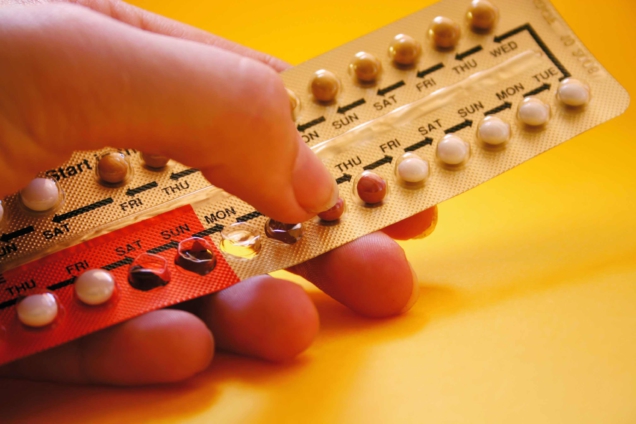
Audio By Carbonatix
A medical practitioner says women are more likely to suffer from stroke because of the prolonged consumption of oral contraceptives.
According to Dr Collins Abaitey Muzu, these oral medications when used for a long may result in clotting in the vessels which transport blood from the heart to the brain.
"The reason why women are said to have a higher risk of having stroke more than men is because of the use of oral contraceptives and pills."
"They’ve been found to increase the incidence of stroke because these medications increase the chances of clot formation in the blood vessels,” he said.

Speaking on Joy Prime’s Prime Morning, he explained that these clots block the free flow of nutrient-carrying blood to the brain causing the cells within that deprived part of the brain to die and hence stop functioning.
“There’s a type where there’s a clot that is blocking the flow of blood to the brain, there’s a clot that is sitting in the artery that goes to the brain or within the brain.”
“When that happens, because the artery is blocked and blood cannot flow beyond the clot, that part of the brain that is supplied blood by that particular artery will die off and lose its function, the cells within that brain will die because there’s no blood going in.”
“The brain has so many parts, and every part of the brain has a function that it performs, so if an artery that is going to the part that controls maybe my arm is impaired and then there’s no blood going to that part, that part of the brain loses oxygen and dies off and cannot perform its function.”
“That’s when you see that people have stroke and they can’t move their hand or their legs or they can’t talk because the part that controls that function is lost because there’s no blood or oxygen,” he explained.
Dr. Muzu also added that older or post-menopausal women who take hormone replacement therapies for a long time are at a higher risk of getting stroke due to clotting in the blood vessel which prevents blood from going into the brain.
This medication contains female hormones which tends to replace the estrogen that the body stops making during menopause.
Latest Stories
-
NPA pushes back on proposals to scrap Fuel Price Floor Policy
5 minutes -
Stanbic Bank Ghana begins 2026 with thanksgiving service; reaffirms support for Ghana’s economic recovery
54 minutes -
Nigerian imam honoured for saving Christian lives dies aged 90
1 hour -
What a seventh term for 81-year-old leader means for Uganda
1 hour -
AFCON: ‘Shameful’ and ‘terrible look’ – the chaos that marred Senegal’s triumph
2 hours -
Rashford scores but Barca lose to 10-man Sociedad
2 hours -
Diaz will ‘have nightmares’ over ‘Panenka’ failure
2 hours -
Tragic death of Chimamanda Adichie’s young son pushes Nigeria to act on health sector failings
2 hours -
‘I want to show the world what Africa is’: YouTube star brings joy and tears on tour
2 hours -
‘An ambassador for African football’ – Mane is Senegal’s Afcon hero
2 hours -
‘Europe won’t be blackmailed,’ Danish PM says in wake of Trump Greenland threats
4 hours -
Three admit £70m tree planting pension fraud in UK
5 hours -
How crypto criminals stole $700m from people – often using age-old tricks
5 hours -
Construction emissions pose rising climate risk, Scientists Say
5 hours -
At least 21 killed in Spain after crash involving high-speed trains
5 hours

